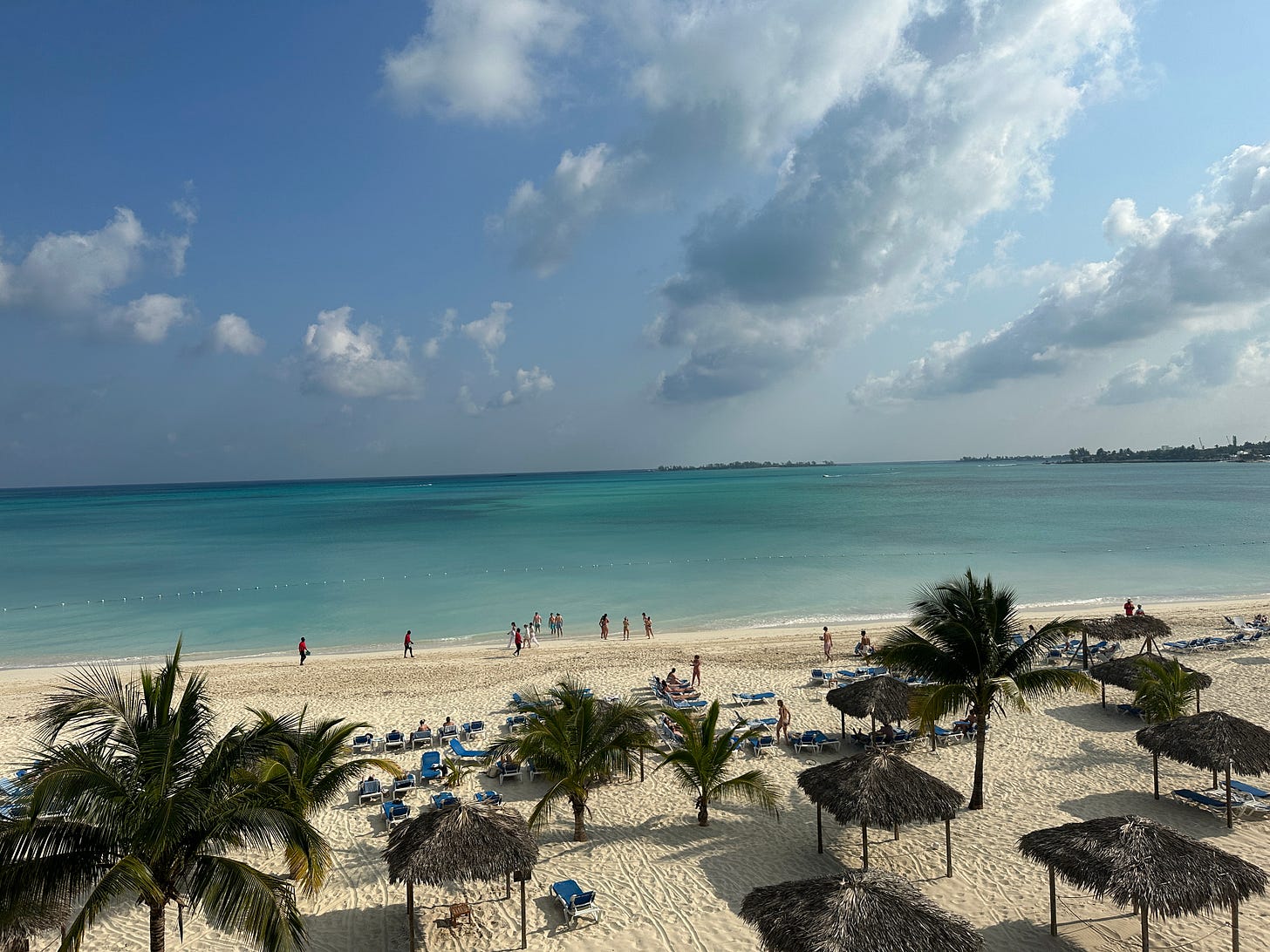What a Prostitute Taught Me About Autodidacticism
How an unexpected encounter revealed the art of self-directed learning
I once traveled to a tropical island with my college roommates. Late one night, I found myself leaving a casino all alone. My friends wanted to keep gambling, but I just wanted to sleep.
As I walked towards the path back to the hotel, a middle-aged woman approached me. We exchanged small talk until, out of nowhere, she changed the subject.
“Do you want some blow?” she said in her Caribbean accent.
“No. I don’t do cocaine,” I said.
“How about a blowjob?” she said, without missing a beat.
After denying both of her offers, I couldn’t hold in hysterical laughter as I walked away.
I later reflected on her amazing pivot. She was adaptable, curious, and well-rounded. She learned how to sell both drugs and her body. She was a Renaissance woman, you could say.
You know, people tell you to “niche down” or “specialize” but she was not like that, no. She was the proverbial jack of all trades who didn’t limit herself to one subject or pursuit.
This is the way of the autodidact.
In all seriousness, committing to autodidacticism is one of the main sources of joy and meaning in my life. One of the worst assumptions to have is that education is something that ends. Formal education is valuable, of course, but it is often self-directed learning that proves even more so.
But the question naturally comes up: with self-teaching, how do you decide what to learn? The autodidact answers that they are guided by two principles:
Nature knows no bounds
Fun is the North Star
Key ideas from the fundamental disciplines—philosophy, science, economics, religion, and literature—are possible for anyone with enough curiosity to grasp, and learning about topics you find interesting is inherently fun.
But this process has two common pitfalls to watch out for:
Echo chambers
Not acknowledging your ignorance
The way to avoid falling into echo chambers and confirmation bias—which I struggle with—is to deliberately expose your mind to perspectives you strongly disagree with. Seek out ideas you think are wrong. It’s hard on your ego, but it is the intellectually honorable thing to do, and you’re guaranteed to learn.1
And when it comes to not acknowledging your ignorance, well, refusing to do so is pure foolishness. This is one of the earliest lessons of the most ancient wisdom. The Upanishads: “If you think ‘I know well’, little truth you know.” The Tao Te Ching: “He who knows has no wide learning, he who has wide learning does not know.” And, of course, Socrates: “The only wisdom is knowing that you know nothing.”
Or as the physicist David Deutsch would say, your knowledge will always be infinitely far from being complete. Besides, there is great freedom in simply saying “I don’t know.” Avoid the Dunning-Kruger effect at all costs, chief. And besides, to risk stating the obvious, studying the fundamentals doesn’t make you an expert. Specialists will always know more than generalists in their field. And again, there will never not be an infinity to your ignorance.
But that’s all right. Because being an autodidact isn’t about learning everything. That’s impossible, of course. It’s about knowing that you can learn anything, and enjoying the great adventure of searching for truth.
Read Nietzsche but don’t forget about the Buddha’s wisdom. Enjoy the sayings of Jesus but give Machiavelli his due. Consider the economic philosophy of both Adam Smith and Karl Marx. Dive into Biblical passages while having an understanding of the process of evolution by natural selection. Gain an understanding of the tyranny of both communism and fascism. Contemplate the perspectives of the atheists and the faithful. Read the New York Times and The Wall Street Journal. Hear out the AI doomers and the techno-optimists. Do this not from a place of moral or cultural relativism. Let’s be clear: objective truth exists, and some cultures are more pleasant to live in than other cultures. Rather, do this from a place of criminal curiosity. The philosopher Albert Camus is often attributed with saying, “Always go too far, because that’s where you’ll find the truth.” Do it. Go too far.



Great post! I think your points about self-learning apply broadly to life, both implicitly and explicitly. Implicitly, the content we consume shapes our worldview. Explicitly, I’m now engaging with people regardless of our ideological differences.
I’ll admit that during Trump’s first term, I stopped talking to people I considered “extreme” or ideologically incompatible with me. I missed the mark because while we disagreed on key issues and approaches, we fundamentally agreed on the outcomes we wanted: self-determination, freedom, safety, and opportunity. On a deeper level, I also lost sight of what those friendships and connections meant to me personally.
Now I’m taking the approach of meeting people where they are without discounting their perspectives, and really avoiding isolating myself in my own echo chamber—which includes diversifying the books and voices I engage with.